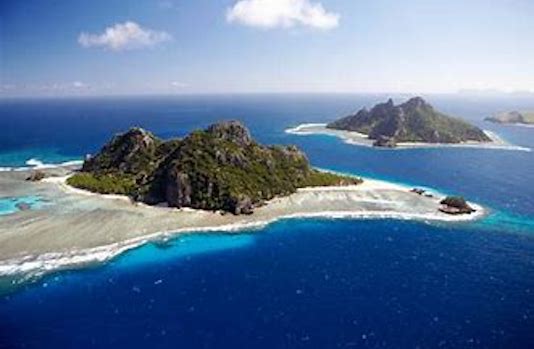A tale of crime, punishment, and redemption from the other side of the globe
Some decades ago, my wife and I were teachers on the island of Kadavu in the South Pacific nation of Fiji. Ours was a boarding school to which students would come from villages up to twenty miles away, sometimes on foot and sometimes by “outboard.” The students attended class during the day after performing an hour and a half of early morning chores. After classes they worked in the fields where they raised most of the food they ate. They studied under benzene lanterns in the classrooms after dinner, and then slept in the rustic dormitories at night. Like the other teachers who supervised all of the above 24/7, Tracye and I lived on the school compound either in a one-room thatched hut or a small, wood framed house with three rooms a corrugated tin roof. There were no roads, electricity, in-door running water, or plumbing.
Once a year, the school would host the much anticipated “bazaar”, a fun day where parents, other family members, and locals would come from villages near and far to join the students and teachers in a day of laughter, story-telling, songs and dances, and selling fish, root crops, handmade mats, coconut oils, and other items the parents brought to raise money for the school. It was the highlight of every year.
During our first year, some local villagers in their late teens and early 20’s made a batch of “homebrew” for some serious pre-bazaar tailgating. Homebrew was a heady mix of water, yeast, sugar, and whatever fruit was handy. (The practice was, fortunately, rare.) In a matter of days, this concoction turned into a powerful and foul-tasting rocket fuel with a very high alcohol content, ready for consumption.
And consume these young guys did, starting the night before the bazaar. Fijians are among the friendliest, convivial and tolerant people on earth – until they drink, when sometimes indignities from the past are lubricated sufficiently to bubble up to the surface. On bazaar day, the fun atmosphere was suddenly broken by an ugly commotion nearby.
I ran towards the noise and saw where four of the drunken young men had attacked a fellow villager. They had clobbered him over the head with a heavy iron bar. Staggering over the prone body, they were struggling to pick up a huge rock which I believed they were going to drop on the villager’s skull.
I decided that I should do something other than stand by and watch a guy get killed. I guessed that these young guys might back off if a teacher, particularly a “European”, intervened. I knew each of them, though I had never seen them in this fired up state. I ran over, yelled a mix of Fijian and English intended to sound authoritative and threatening, and they dispersed, leaving their unconscious victim bleeding profusely but otherwise alive. A few village men carried the villager to the nurse’s station about 3 miles away where he got stitched up and spent the night, walking home the next day.
Some months afterwards that I learned that the men in the village to which these young men belonged had gathered with the chief to decide on a fitting punishment for the homebrew four. All were summoned by the elders and tied up. Each was severely beaten on the buttocks with a heavy stick. The beatings, I was told, were horrific, but they were designed to let these young men atone for their wrongdoing and regain their prior status in the village. I asked what would have happened if these young men tried to run off and avoid their punishment. I was told that, if caught, they would have been killed. Instead, having accepted their punishment, brutal though it was, they were forgiven and life went on. There were no other incidents over the rest of our three years on Kadavu where these young guys caused any trouble.
Roll forward to today from halfway around the world. Crime has exploded in our already violent American cities. Hundreds of young men are being killed each year in Chicago, NY, Philly, Detroit, LA, and many other places. Guys with long rap sheets are being released without bail. Police are being attacked. Law enforcement in New Jersey is not allowed to alert parents when they catch a minor drinking or smoking weed. Authority has broken down. What has happened? Where are the men? Where are the fathers?
What has happened? Where are the men? Where are the fathers?
Fiji is a third-world country to which American Peace Corps volunteers are sent so that a poor people can build and enjoy a more advanced way of life. We might have it all wrong. I am not espousing severe corporal punishment. But at least when it comes to men performing what for centuries men did – protect their homes and families, fight the bad guys, and promote peace and stability — I think we American males can learn a lesson from the Fijians.
###
Bill McCusker






